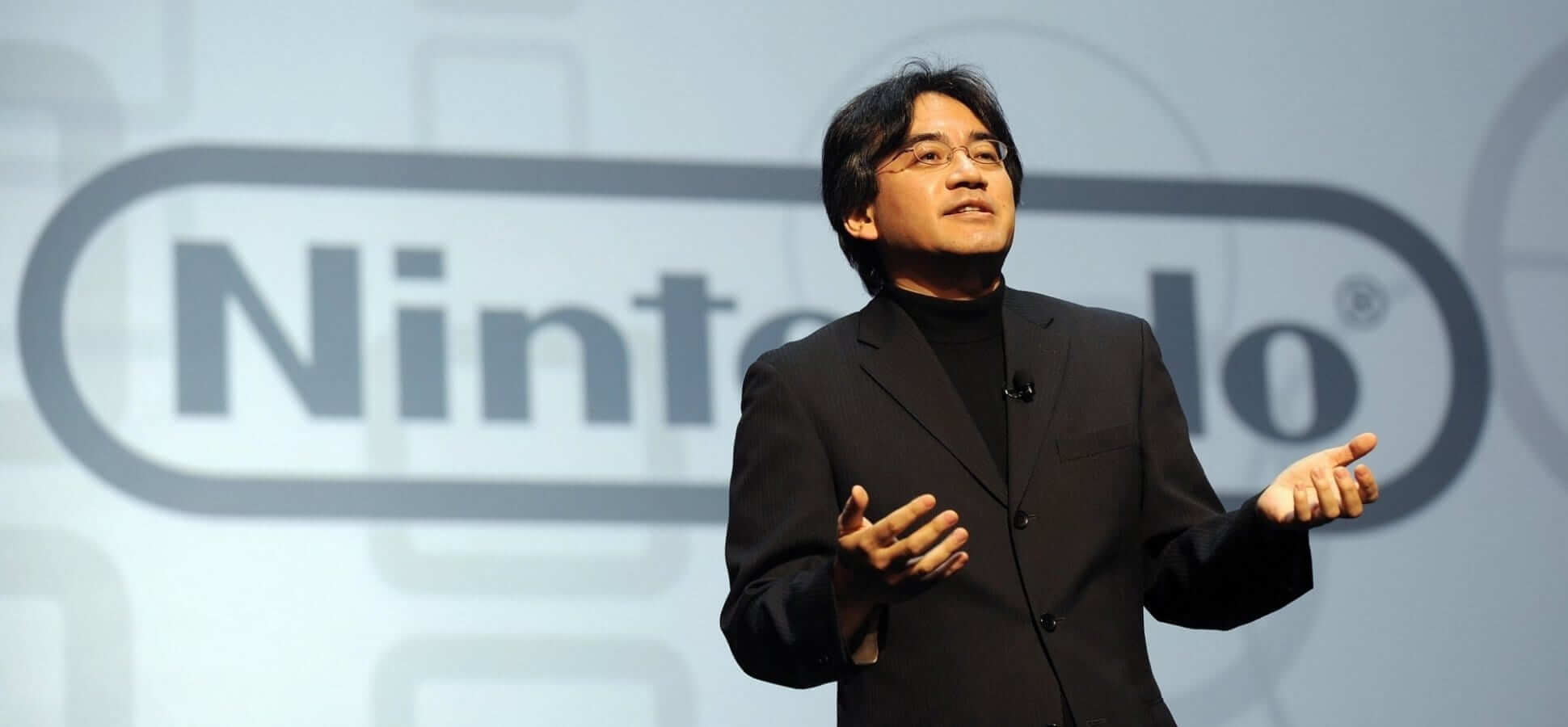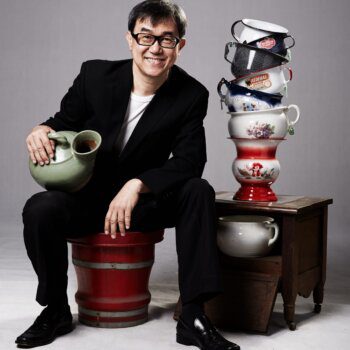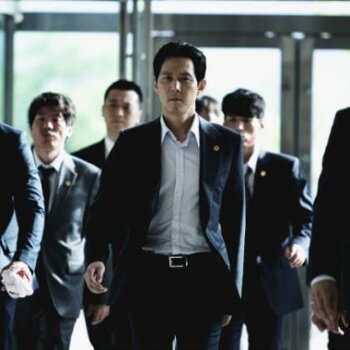We reached out to several games industry analysts after the death of Nintendo president and CEO Satoru Iwata was announced. Like the rest of us, they were all reeling from the terrible news. “I am deeply saddened,” says Serkan Toto, a consultant with Kantan games in Japan. “I saw him in person last in March when he announced the DeNA deal in Tokyo; he was thin, but looked healthy and energetic.”
Many noted that it would be extremely hard to replace his warm personality as well as his singular achievements. “During his career, the company recovered from the disaster of the GameCube and grew its handheld business by four fold,” notes Michael Pachter, a research analyst with Wedbush Securities. “He also presided over the launch of the Wii, which had a phenomenal run and attracted millions of people to gaming.”
We asked analysts for their take on how Iwata’s death will affect the company that he leaves behind, and what moves his successor might make.
What does Iwata’s death mean in the short term for Nintendo?
“I’m sure they’ll stay the course. For the next several weeks there will be mourning and low morale inside the company and beyond, more eulogies about his kind heart and deep love of gaming. But sometimes getting back to work also helps people cope and recover.” –Lewis Ward, research director for gaming at IDC
“Iwata was infectiously enthusiastic about Nintendo. That alone is a hard quality to replace. -Michael Pachter, research analyst with Wedbush Securities”
“Nintendo should be prepared for this scenario. Iwata-san had serious health issues for a long time, and chances are that his company was much better informed about how severe his condition has been than the general public. I think that the company will pay the respect due to their former CEO, and is now putting all efforts into finding a successor with similar qualities. This is the most important short-term challenge.” – Serkan Toto
“In the short term, Nintendo faces a lot of problems. Mobile gaming is eroding Nintendo’s handheld market, as the more casual end of the gaming spectrum is generally satisfied with free to play games that don’t require ‘additional’ equipment (dedicated consoles instead of phones that were purchased for another purpose). I think that Mr. Iwata made the right decision to open Nintendo’s IP to mobile games, but it isn’t clear that they are in a position to execute. Mobile gaming is a difficult business, and great IP doesn’t make a great free-to-play game. Mr. Iwata’s successor will have to execute on the company’s mobile strategy, and will be under a magnifying glass when their first mobile game launches later this year. In the meantime, the Wii U is clearly a bust, and Nintendo has lost third party support for the console. Mr. Iwata’s successor will have to win third parties back, and will have to shepherd in the NX console next year.” – Michael Pachter
Do you think Nintendo will seek a replacement for Iwata outside of the company? Outside of Japan?
“Given the tight and close-knit culture of Nintendo, my guess is that Iwata-san’s successor will come from inside the company.” – Colin Sebastian, analyst with Robert W. Baird & Co. Incorporated
“I doubt it. Nintendo has been a family affair for most of its existence so I suspect that they’ll look internally first and foremost – and if the new CEO isn’t from Japan I’ll be very surprised and it will signal a profound shift in thinking about the company’s future.” – Lewis Ward
“Going outside of the company or Japan would be fairly out of character for Nintendo.” – David Cole, DFC Intelligence
“A Japanese person would be much more likely, I don’t think Nintendo is ready to let a foreigner lead. The question is who would that be? The only person who instantly comes to my mind as a great potential candidate outside Nintendo is Kazuki Morishita from GungHo Online Entertainment.” – Serkan Toto
“I don’t know enough about Nintendo’s management depth or its board to know what they intend to do for a replacement. My bias is that the board considers Nintendo a Japanese company, and there are many capable current and former Japanese game executives at Konami, Square Enix, Capcom, Sega, DeNA, Gree and Gung Ho, so my best guess is that the board will look for a Japanese successor. Again, I don’t know anyone inside the company who is a good fit, except for Shigeru Miyamoto. However, Mr. Miyamoto has his hands full running the creative process, and is nearing the end of a very long career, so I think he is more likely to remain in his current position.” – Michael Pachter
What skills will Iwata’s successor need to possess? What will be the most difficult task he/she faces?
“Just having a ‘business guy’ leading the most iconic game maker in the world will not be enough. Iwata-san had the rare ability to combine vision, business sense, leadership, experience, the right age, and the heart of a gamer (as he put it) with a strong technical and creative background. The most difficult task for the next CEO is to stay on course and not try to divert from the direction Iwata-san put Nintendo in, which I think is the right one: expanding the usage of IP, entering more partnerships with other companies, phasing out the Wii U and 3DS (as it looks like), and most importantly entering mobile.” – Serkan Toto
“Nintendo still has tremendous value in its game franchises and a loyal fan base. Any incoming CEO, whether they be from inside or outside the company, will need to harness these strengths, and ultimately leverage them across whatever form of game platform people are using. This could mean publishing content off of Nintendo’s proprietary hardware. Or it could mean accelerating the roll-out of new Nintendo hardware as a last ditch effort to counteract competition from Apple, Microsoft, Sony, etc.” – Colin Sebastian
“Mr. Iwata never lost sight of the fact that, at the end of the day, entertaining and surprising gamers is what matters most of all. He didn’t just run a hardware company or a software company, he had a deep love of gaming, and that shined through throughout his career. I think the new CEO has to strike a similar, albeit unique, balance between corporate management and industry visionary.” – Lewis Ward
“Iwata was infectiously enthusiastic about Nintendo. That alone is a hard quality to replace. The most important skill his replacement will need to have is the ability to adapt to a changing landscape. Consoles are becoming less relevant as people are more connected to the Internet. Multiplayer gaming has grown into the dominant genre, and Nintendo has barely scratched the surface. The mobile market, with free-to-play games in particular, dwarfs the console market, and Nintendo’s IP in many cases is a great fit for mobile (consider Pokemon as a free-to-play game). Mr. Iwata’s successor will take over a company that has only just begun the transition to multiplayer and free-to-play, and navigating that transition is a challenge.” – Michael Pachter
What would be the advice you would give to Iwata’s successor? What direction should they take Nintendo in?
“My advice to the next CEO of Nintendo is to consider exploiting Nintendo IP following the Disney example, with movies, toys, toys to life, pajamas, theme parks, etc. Nintendo has already begun to do this, but the successor should redouble their efforts. I also think that the strategy of proprietary IP for proprietary devices is dying, and think that Nintendo would be far more successful if it supported all consoles.” – Michael Pachter
“The company is struggling to find its way in a world that has changed all around them. My advice would be to take a harder look at understanding the changes to the game industry on a global basis and how that may require a reassessment of Nintendo’s long held practices. A successor will really need the ability to look outside the company and understand how the world has evolved, and what it means for Nintendo’s core products and audience.” – David Cole
“Think what you like about mobile, but smartphones and tablets have created the biggest gaming market that ever existed. In no other time have more people played games than right now. It’s the right target group, and it offers a huge potential for Nintendo, the only video game company left that doesn’t produce mobile content. I think the reality is Nintendo must become a big player on mobile as well in order to thrive going forward, and Iwata-san’s successor should be following the path that he had already put Nintendo.” – Serkan Toto
“They need to do something revolutionary on the online social side of gaming in my view with NX, similar to how Nintendo sent the industry in a new direction with the Wiimote. My main concern is that Nintendo sometimes seems too beholden to its history. They’re behind the curve on online multiplayer gaming, and in online community infrastructure in general, and so whatever they’re planning to do with NX, I sure hope that it involves a reinvention of how social gameplay can be easily enabled around the globe while remaining all-ages friendly as well as secure. ” – Lewis Ward
compiled by Neuropuff. see more.





























